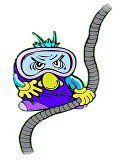Septic System FAQs
Hair
It clogs the shower drain, bathroom sinks, and effluent filters inside the septic tank.
Huge clumps can create blockages in the plumbing pipes, creating backups.
Dental Floss
Dental floss does not biodegrade and is similar to hair, eventually becoming entangled and creating clumps that can cause blockages and create big problems for the septic tank and sewage pumps (if you have a lift station).
Fats, Oil & Grease
Thinking of oil and grease, you think BACON grease...but it's so much more. It's spoiled milk, any dairy, condiment liquids (ketchup, mayo, etc.), it eventually hardens and builds up in the plumbing and on the tank walls. It also kills the good bacteria in the septic tank, meaning more maintenance and likely emergency service calls!
Band-Aids
Non-biodegradable and should go straight in the trash!
Medications
The water you flush eventually ends up in our rivers, lakes and oceans. In some cases, it even becomes drinking water, so old and expired medications should never be flushed because they will contaminate the groundwater. Contact your local Sheriff's department on the proper way to dispose of unused medicines.
Paper Towels
Paper towels do not biodegrade at the same rate as toilet paper and will easily clog your plumbing and create a backup.
Disposable Wipes (Flushable)
While the package may say "flushable", it's a myth. The wipe material skims the top of the septic tank and creates a layer that eventually builds higher and higher and will block your inlet line, causing a blockage and backup. Plus, pumping the septic tank is more difficult for the pumper. You will likely be charged an additional cost to remove and dispose of the waste with wipes.
Contraceptives and Prophylactics
These items are not biodegradable. Throw in the trash!
Kitty Litter
Non-biodegradable and will clump and dry into the plumbing pipes.
Feminine Hygiene Products
The most common thing that is flushed down the toilet can cause the most havoc! Best to toss them and not flush them!






